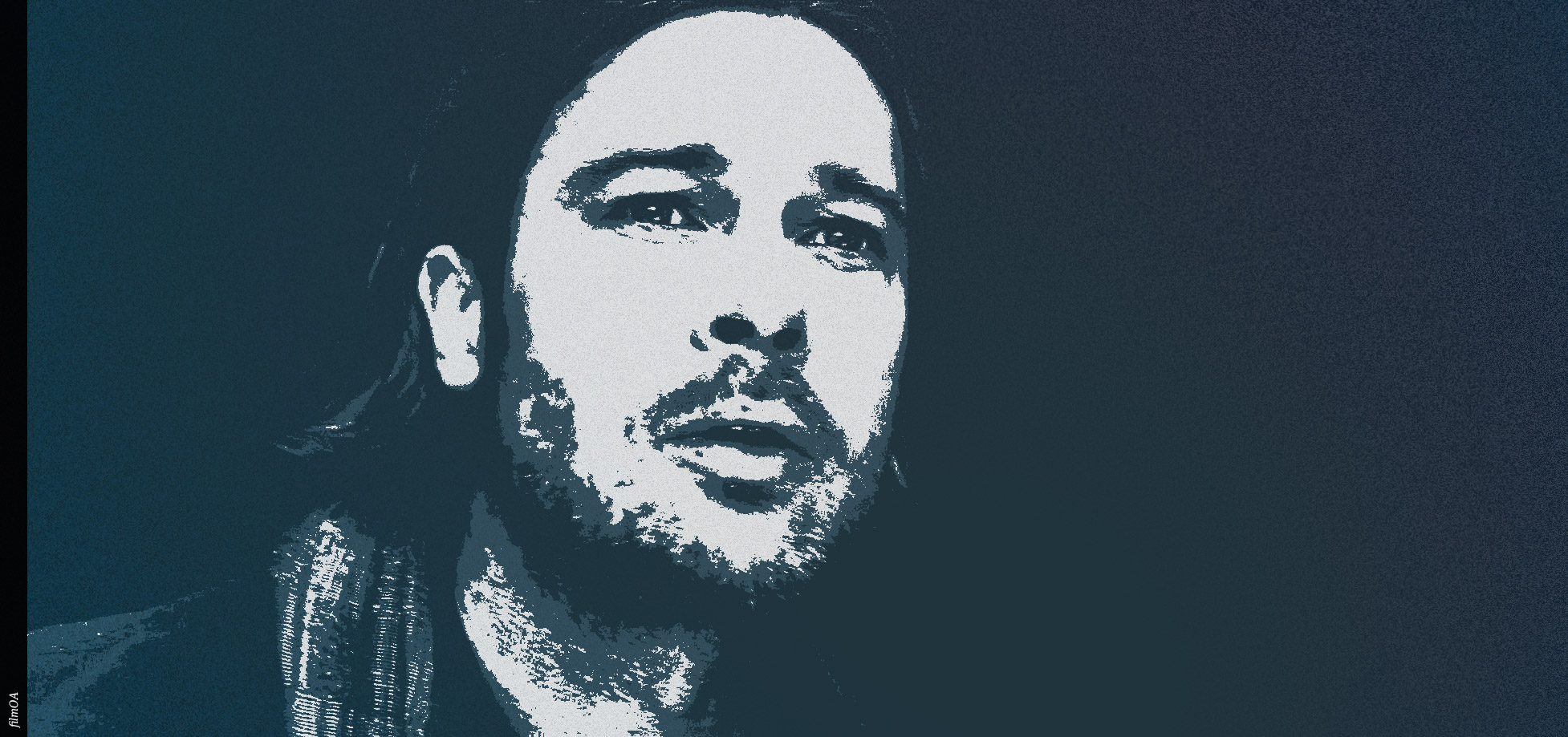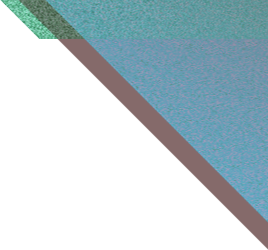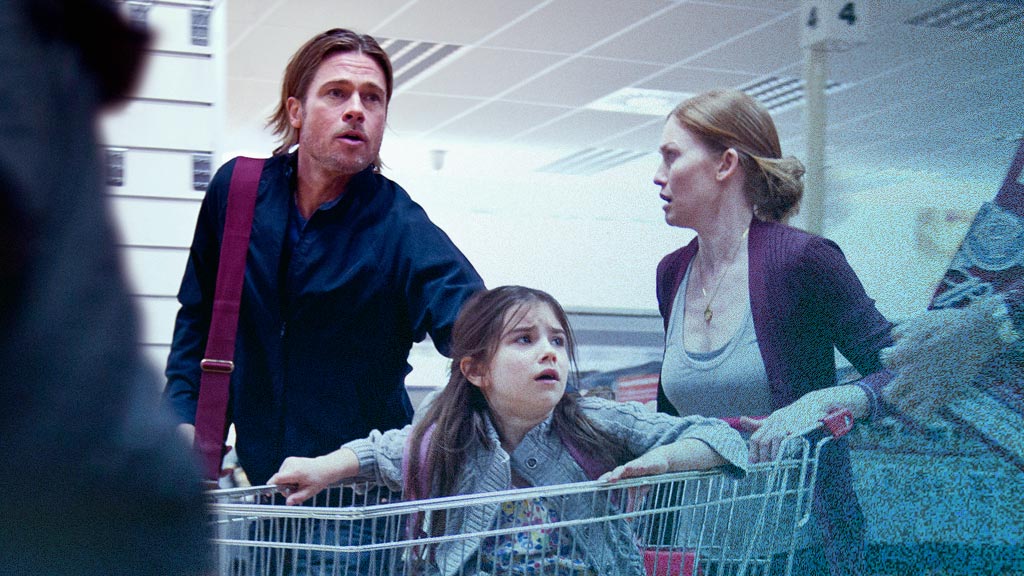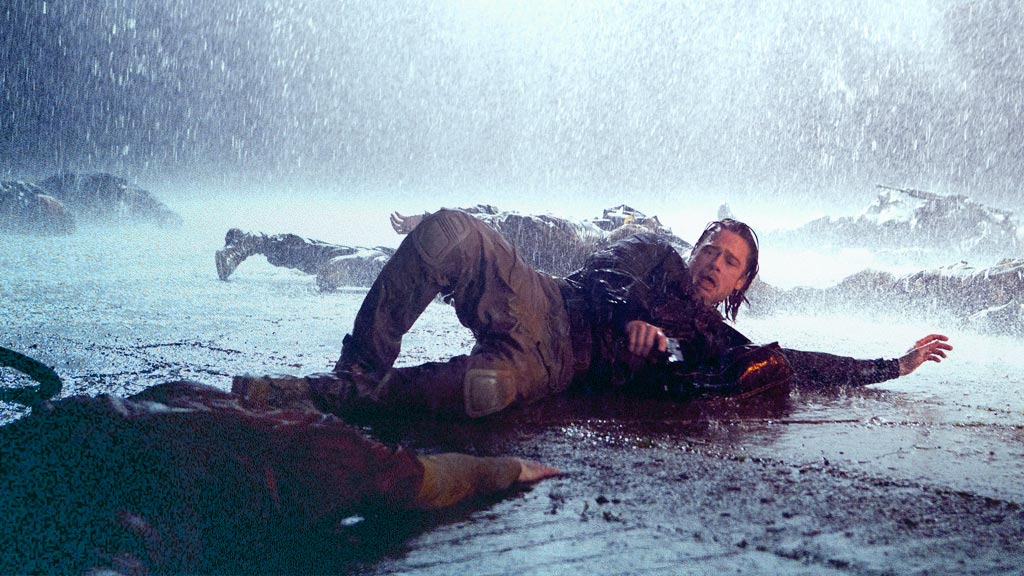Latest
Contact
filmOA v2.0


filmOA | out now
text Sam Thorne
Before I dive into the crux of World War Z, I feel a little context is needed. World War Z is a film based on the incredibly successful novel by Max Brooks. The film is directed by Marc Forster and stars Brad Pitt. What’s notable about its production is the numerous re-writes of the script. The script was edited and re-drafted by three different screenwriters. And when you consider it’s originally based an a novel you could imagine how far the content has divulged from its original source. In addition, the film had 7 weeks of re-shooting, after its principle photography had finished.
Gerry Lane is a retired UN worker now living comfortably with his family of 2 daughters and his wife. Whilst stuck in traffic in Philadelphia, chaos unfolds as a deadly infection begins to spread. Gerry and his family flee outside the city and contact an old UN associate of Gerry’s, who arranges a helicopter to pick up Gerry and his family and take them to a US Navy ship currently being used as a base of operations. Soon after he lands, Gerry is told he must go on a mission to escort Dr. Fassbach, a virologist to Camp Humphreys in South Korea. The narrative unfolds in a wild-goose chase across many continents in search of a cure and more information as the question is asked: will humanity prevail?
The immediate difference in World War Z from most zombie flicks is the perspective from which the story is told.
World War Z doesn’t follow a few stragglers in the countryside, waiting for the military in hopes someone will save them. Gerry and his family are at the very center of resistance, which is quite a contrast. I’m sure there’s some kind of political context or back story lurking in the background, but it’s mostly drowned out by action sequences and very basic dialogue. The scale of the film however is very much upgraded. The ‘world’ aspect is entirely incorporated with Gerry traveling to several regions of the world such as Korea, Jerusalem, Wales. The funding also goes as far as to show military resistance against the zombie threat, which is mildly entertaining. While the spectacle is more of a visual factor, it lacks an emotional depth which should in some ways be the central point in a Zombie film, such as 28 Days Later or I Am Legend.


When all is said and done, World War Z is essentially an action film.
Then the zombies. They’re pretty much entirely CGI, and it shows. I personally wasn’t scared while I’ve found zombie films relatively thrilling in the past. A notable change in their makeup is that the transformation takes about 15 seconds from man to zombie. This generally rids any kind of suspense in whether someone will change or not. Then again, it’s not entirely relevant as World War Z doesn’t really cling to many characters or stay in one place. It’s very fast moving. In the movement and general animation zombies can run at an incredible pace or even sprint. Whilst the film does use the word ‘undead’ and ‘zombies,’ the infected aren’t that comparable to the slow, shambling brain hungry zombies of old.
The direction is mostly good. I feel like Marc Forster made the best out of a bad job script wise. Something I couldn’t really get past is how conceited the ending was. And how it wasn’t really consistent to how the story had progressed so far. There’s a very thin line between clever and stupid, and World War Z is walking a tightrope in between. Ultimately the film has some interesting ideas, executed badly. A muddled script that feels like it’s been rewritten several times — which it has. A good cast, though no real chances to show it off. World War Z is mostly interesting as in how a big budget zombie movie would be made. It’s mostly a visual spectacle with some tension action pieces, that fundamentally has abandoned all of the supposed emotion and depth the source material offered. 

60%
worth the popcorn